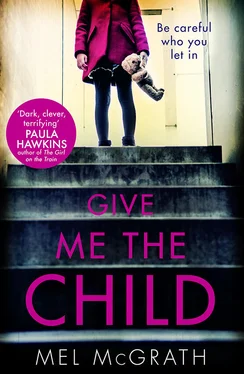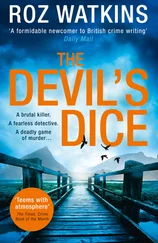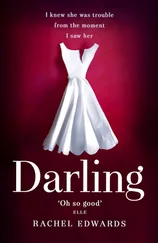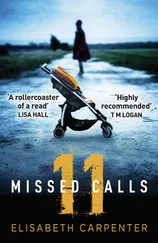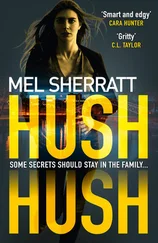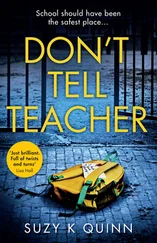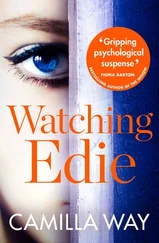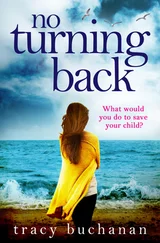The policewoman’s phone went. She answered it, listened briefly, then, turning to Tom, she said, ‘I’m afraid we’ll need to keep you a little longer to go over a few things – but we’re done at the flat if…’ She smiled at me. ‘Perhaps you’d like to go and fetch Ruby’s personal effects?’ She told me the address and began giving me directions.
‘That’s OK, I know the Pemberton Estate.’
‘Oh!’ the policewoman replied, her voice full of amazement, as if neither of us had any business knowing anywhere like the Pemberton.
‘It’s where I grew up,’ I said.
According to the police, Lilly Winter had taken over the lease on flat sixty-seven in the Ash Building, one of the red-brick hutches forming part of the original estate, from her mother, Megan Winter, who had moved into the flat from another council property near Streatham. Ruby was born at the flat while her grandmother was still the registered tenant so grandmother, mother and baby must have been living together at that point. The names didn’t mean anything to me and it seemed unlikely that we’d ever coincided. I’d left the place twenty years ago and hadn’t been back since the death of my mother. I didn’t particularly want to go back now, but I was too curious about Lilly Winter to let the opportunity pass. So I left a message on my assistant Claire’s mobile asking her to move my nine o’clock, then Tom and I had a brief discussion about what to tell Freya if she woke up while I was gone and I got in the car and headed south.
When I was growing up, in the nineties, working-class kids of all ethnic varieties lived on the Pemberton, which we called the Ends. The whole district was more than a bit scrappy and shitty. The main road south towards Croydon split the area in two and it was impossible to leave without running into a busy arterial road, as a result of which we rarely ventured far. The surrounding workers’ cottages were occupied by first-generation immigrant Jamaicans who put up cheery curtains and planted their gardens with sunflowers. A handful of elderly whites and some Asian families lived among them and a few middle-class gentrifiers had taken over flats in the villas behind the cottages, though a lot of those were still squatted. But even as kids we could tell that, in some unspecified way, the area was on the move, which made the Ends feel as if it was about to be cut off by the tide. For years there were rumours that the whole estate was to be completely redeveloped and the residents moved elsewhere. At the time, we felt like anarchists, free to run wild without consequences. With hindsight, the instability left us feeling insecure. Those of us who grew up on the Ends did our best to ignore the sense that we had drawn the short straw. We lived for music, sex and a bit of weed. Destiny’s Child, N.W.A., Public Enemy, R ’n’ B, urban, whatever. Friday and Saturday nights you’d meet your homies around the ghetto blaster, roll some joints and have yourselves a party. There were gangs and the odd gang-related ruckus but you could steer your way around them. We felt free but at the cost of knowing we didn’t matter, that kids like us were only of any consequence within the narrow confines of the Ends themselves.
At the traffic lights I made a right, skirting around the southern side of Grissold Park, then up along the wide, leafy road that ran along its western border, and turned again at the filter into a grid of half-gentrified Victorian terraced houses punctuated by shabby corner stores and fried chicken shops.
I slowed and tried to quell the fluttering in my chest. Memories. My manor. Approaching the rack of brutalist tower blocks fronted by older, lower tenements of red brick and what might once have been, but were no longer, cream tiles, I was a teenager again. Furious, mouthy and secretly determined to escape. The parties and the friendships and the ‘what the fuck’ Saturday night feeling had never been quite enough. There had been an itch in me to leave and I knew it would take everything I had to make it happen. Because the trouble with the Pemberton was that if you didn’t get out fast, you didn’t get out at all.
The late July sun was steadily beating down now and, despite the early hour, the estate was already sticky in the heat, the pavements speckled with clumps of dog shit – dark matter in an expanse of Milky Way. Some kids were mooching their way to school, kicking a football along the tea-coloured grass, their elder brothers and sisters hurrying them along, weapon dogs strung in tightly beside them.
I parked up and got out, conscious of being watched – someone is always watching in the Ends. It wouldn’t do to be taken for a social worker or, worse still, a Fed. Two girls were standing at the foot of an external stairway smoking, one in wedge sandals too small for her feet, the other sporting a set of sprayed acrylics which she was tapping on the handrail. Tough kids, showing off their credentials. I headed over; they’d spread the word among whoever needed to know.
‘Hey,’ I said.
‘All right?’ the girl in the wedge sandals replied.
The girl with the acrylics looked me up and down then squinted and tipped her head. ‘You slippin’ here, man.’
‘Nuh uh. This my manor.’
‘I never seen you. Who your people?’
‘Lilly Winter. Me and her got the same baby daddy.’
The girls exchanged glances. Then the girl with the wedge sandals said, ‘You too late, innit. Feds bagged her up. Some accident, I dunno.’
‘Yeah, I heard.’
‘She not my crew.’ The girl turned to her friend. ‘The young’un, though, the gingernut?’
‘Yeah,’ said the friend. ‘Facety bitch.’
‘What I’m sayin’. Nobody give a shit if she gone the same way as her mother, and that’s the truth, innit.’

Sixty-seven Ash Building was the second to last flat on the top floor of one of the older, red-brick blocks overshadowed by the towers, and distinguished only by its tattered, unloved exterior. You didn’t have to step a foot inside to know the place was a dump. Close up, everything about number sixty-seven exuded neglect. It was the only dwelling on that floor which hadn’t been customised with door gates, a window box or some cheerful paint. Where the number had once been attached to the door two rusted screws jutted from their holes. The letter box had fallen out and the hole in the door was duct-taped over. There was grime on the windows and the blue-painted windowsill was feathery with disrepair.
Ruby’s key was an awkward fit and got stuck in the barrel. The door rattled in the jamb but remained firmly shut. I was thinking about giving it a good kick when I became aware of a woman in her early thirties who was peering around the door of number sixty-nine, dressed in a pink onesie.
‘You want something?’ The door opened wider.
‘The little girl who lives here, Ruby Winter? I’m picking up some of her things but the key…’ The woman’s face softened. She said her name was Gloria. Eastern European accent. Something familiar about her that I couldn’t put my finger on.
She came over and, waving me away, pressed her shoulder to the door. ‘You got to push hard. Council said they sort it out, but they don’t. Lilly always waking me up.’ When the door gave, Gloria righted herself and stepped over the threshold. ‘Terrible what happen. And that kid, Ruby, she got no mother.’ When I hesitated, she beckoned me with her hand, saying, ‘Come on then.’
I followed her in. The place was filthy, the smell of stale tobacco overpowering. Damp marks on the walls did a bad job of disguising the thin sheen of grease underneath, and dust and hair had accumulated into dark brown hummocks where the lino had lifted in the corners. Two doors led off the hallway. The first opened into a cramped, dark space which must have been Lilly’s bedroom. Her body had been removed, but something in me resisted entering, afraid of what I might find. A mildewed shower was visible through the other door.
Читать дальше
